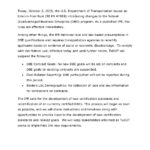In the realm of financial regulation and compliance, transparency is key to maintaining integrity and trust in the system. One crucial aspect of this transparency is understanding the ownership structure of entities, particularly when it comes to identifying the individuals who ultimately control or benefit from them. In recent years, there has been a growing emphasis on requiring companies to disclose information about their beneficial owners, leading to the implementation of Beneficial Owner Information Report (BOIR) requirements in various jurisdictions. In this article, we’ll delve into what BOIR entails, why it’s important, and its implications for businesses and the wider financial landscape.
Understanding Beneficial Ownership
Before delving into BOIR requirements, it’s essential to grasp the concept of beneficial ownership. Beneficial ownership refers to the individuals who ultimately own or control a legal entity, such as a company or trust, and who benefit from its assets and activities. These individuals may not always be the ones listed as the legal owners or shareholders. Identifying beneficial owners is crucial for combating financial crimes such as money laundering, terrorist financing, and tax evasion, as it helps authorities trace the flow of funds and uncover illicit activities.
The Need for Transparency
Historically, the lack of transparency regarding beneficial ownership has provided opportunities for illicit actors to exploit legal entities for nefarious purposes. Shell companies and complex ownership structures have been used to obscure the identities of those involved in illegal activities, making it difficult for law enforcement agencies and regulatory bodies to hold them accountable. Recognizing this loophole, policymakers and international organizations have called for greater transparency in corporate ownership to enhance the effectiveness of anti-money laundering and counter-terrorism financing efforts.
Introducing Beneficial Owner Information Reports
To address the challenge of beneficial ownership transparency, many countries have introduced BOIR requirements as part of their regulatory framework. These requirements typically mandate that certain entities, such as corporations, limited liability companies, and trusts, disclose information about their beneficial owners to relevant authorities. The specifics of BOIR obligations, including the types of entities covered and the information to be disclosed, vary from jurisdiction to jurisdiction.
Key Components of BOIR
BOIR typically includes information such as the full name, date of birth, residential address, nationality, and percentage of ownership or control for each beneficial owner. In some cases, entities may also be required to provide supporting documentation, such as identification documents or ownership agreements. This information is collected and maintained in a central registry or database, accessible to law enforcement agencies, financial institutions, and other authorized entities for due diligence purposes.
Implications for Businesses
For businesses subject to BOIR requirements, compliance entails gathering accurate and up-to-date information about their beneficial owners and submitting it to the relevant authorities within the specified timeframe. Failure to comply with BOIR obligations can result in penalties, fines, or other legal consequences, in addition to reputational damage. However, beyond the compliance burden, there are potential benefits to be gained from increased transparency, including enhanced credibility, improved risk management, and greater access to financial services.
The Global Landscape
The push for beneficial ownership transparency is not confined to any single jurisdiction but is part of a broader global trend towards strengthening anti-money laundering and counter-terrorism financing measures. International organizations such as the Financial Action Task Force (FATF) have issued recommendations urging member countries to implement robust beneficial ownership disclosure regimes. Moreover, initiatives like the OpenOwnership project aim to create a global beneficial ownership register to facilitate cross-border cooperation and information sharing.
The Pierre Firm PLLC Can Help
The introduction of Beneficial Owner Information Report requirements represents a significant step towards greater transparency and accountability in the financial system. But it may be intimidating and confusing to many small business owners.
At The Pierre Firm PLLC, we specialize in handling Beneficial Ownership Information Reports, ensuring your business meets all the necessary requirements. To make this process hassle-free for you, we’re offering our services at a special rate of $199 for the next 500 businesses who sign up.
Don’t let compliance concerns weigh you down. Take action now by visiting The Pierre FIrm PLLC to sign up and secure your business’s future.


